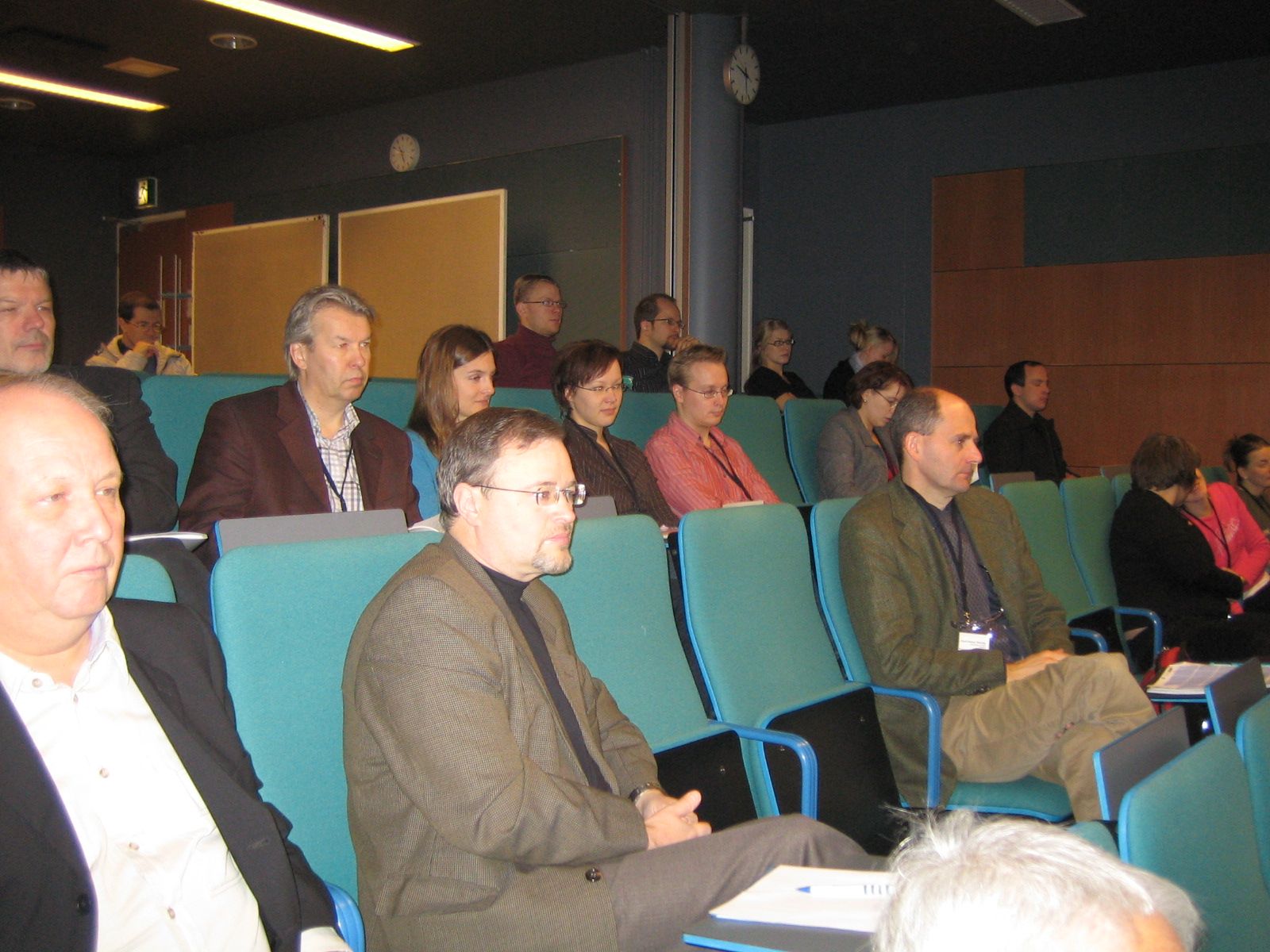The multidisciplinary Kastelli Symposium attracted about 80 participants from nine different countries. The symposium was specifically targeted at doctoral students and their supervisors.
The keynote speakers were Dr. Alan J. Parkinson (Centers for Disease Control and Prevention, Alaska, USA), Prof. Marjo-Riitta Järvelin (Imperial College , London , UK ), Prof. Mark Nuttall (University of Alberta , Canada

Doctor Alan J. Parkinson talked about contaminants in traditional food being one of the current health problems of the indigenous people. As an example, in Inuit communities, the women of reproductive age have high mercury levels in their blood. Doctor Parkinson also presented the Arctic Human Health Initiative, AHHI, a project of the Arctic Council in the International Polar Year 2007–2008.
“The aim of AHHI is to increase public and political awareness and visibility of human health concerns of Arctic peoples, foster human health research, and promote health strategies that will improve the health and wellbeing of Arctic residents,” Parkinson summarized.
In her lecture, Prof. Marjo-Riitta Järvelin talked about the vast birth cohort studies and their significance in health research, highlighting women’s health in particular. One of the example used by Järvelin was the fact that disorders during pregnancy seem to predict health problems, such as higher blood pressure, for the woman’s later life.
Professor Mark Nuttall emphasized that the rapid social and cultural changes, due to the climate change are the most significant factor that threatens the wellbeing in Arctic societies. In Canada

In her keynote address, Dr. Tove Skutnab-Kangas presented the ecolinguistic relationship between biodiversity and linguistic diversity. “Is linguistic homogenisation ruining the planet?” she asked and answered: “Yes. Knowledge about how to maintain biodiversity is encoded in small languages because it is their speakers who live in the world’s biologically (and linguistically) most diverse areas. Through killing these languages (or letting them die), we kill many of the prerequisites for maintaining biodiversity”. In the most “pessimistic realistic” prognosis,
